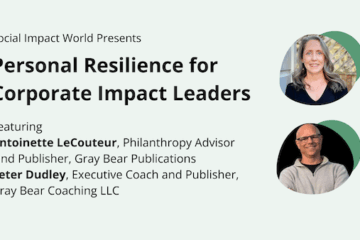Is your life designed by committee? If so, claim your role as your own committee chair.
Camels are remarkably well adapted to the desert environment. For example, their nostrils are designed so that when they exhale, they recapture the moisture in their breath rather than lose it to the dry air. And their mouths have a thick, leathery lining so they can eat prickly desert vegetation.
Camels are also odd-looking creatures with goofy long necks, strange humps, ungainly gait, and shaggy faces. They also have a reputation for being cranky and cantankerous, and for spitting when they’re upset.
A camel is a horse designed by committee.
Reportedly Alec Issigonis
Horses and camels share some characteristics. Both have four longish legs. Both can be ridden by humans or used to carry heavy burdens. Both eat plants and drink water. Both have tails.
But they have differences, too.
And it’s fair to say that a camel is very good at being a camel, but it is not very good at being a horse.
But what does this have to do with you? You are neither a camel nor a horse. (I presume.)

But I do not mean to imply that this is you.
Photo taken at Avila Valley Barn
You may think this post is about being well adapted to your environment, or about living a strengths-based life. (I do write about that stuff a lot because it’s important.)
But this post is not about those things. It’s about claiming your own role in deciding who you are.
It’s about understanding the difference between intrinsic values and externally imposed values, and why this is important.
A horse designed by committee
Imagine a situation where someone wants a creature designed to do some things for them. They write up a spec sheet and then hire a committee of several people to design and build it.
The specifications:
- Lives on land, eats readily available vegetation, hydrates with water
- Must be able to move quickly across various terrain
- Must be able to carry heavy loads and pull a wheeled cart
- Must be able to carry a human rider long distances
The client doesn’t know exactly what they want or need, just the results they hope to get. They believe this committee will have all the answers and provide the perfect solution.
In reality, each member of the committee will bring their own biases, experiences, and personal frame of reference to this task. One has lived with their large family in a desert their whole life. One is a cartoonist whose dysfunctional romantic relationships always end in drama. One is a grumpy curmudgeon who lives alone. One is a Wall Street executive.
Who knows what they might come up with?
It might be a camel. It might be a mountain goat. It might be a triceratops.
It’s possible—but unlikely—that they come up with exactly what the client needs. Which in this case is a horse.

Photo taken at Glacier National Park in 2011
A life designed by committee
Now imagine you bring together several people you know and trust. You believe they all care about you and want the best for you. And you ask their advice on your big life decisions.
Should you quit this job? Should you move in with that guy? Should you try out for America’s Got Talent? Should you let your grown daughter move back in with you? Should you fire that difficult employee? Should you start that home business?
In every question you ask them, your committee already know your spec sheet:
- You want to be happy
- You want to be secure
- You want to be valued
- You want to be healthy
You don’t know exactly what you want or need, just the outcomes you’re looking for. But you believe these people will have all the answers and provide the perfect solution.
In reality, each member of the committee will bring their own biases, experiences, and personal frame of reference to this task. One has lived with their large family in a desert their whole life. One is a cartoonist whose dysfunctional romantic relationships always end in drama. One is a grumpy curmudgeon who lives alone. One is a Wall Street executive.
How likely is it that they will know exactly what will make you feel happy, secure, valued, and healthy?
They may get lucky with some advice that fits, but more likely the advice they give you—the life they design for you—will match what they want, not what you need.
Those are externally imposed values.
Design committee versus personal board of directors
A lot of wise, successful people have advised us to build our own personal “board of directors.”
I’m not against that. In fact, most of those wise, successful people include “coach” as one of the compulsory members of your board, so yes, definitely, you need to do this.
There is a huge difference, however, between taking advice from smart people and asking others to make decisions for you.
“Just tell me what I should do”
We all go through it from time to time:
“I wish someone would just tell me what I should do.”
Wouldn’t it be easier if life worked that way?
The problem with handing over your power like that, though, is that you always get what would be right for that person. If you’re very, very lucky, it might also be right for you, too.
More often than not, though, you’re left with advice that feels like it doesn’t fit. In that case, the best outcome is often a constant, vague sense that something is wrong but you can’t quite figure out what.
You needed a horse, but they designed you a camel.
Taking control of your own decisions
I remember a lesson I learned early in my career about personal accountability for our choices.
A friend was telling me about his father. His father had been bitter and angry about work for years. He blamed work obligations for taking all his time, making him miss his kids’ events, running him ragged with travel.
Then one day, this man realized he could choose. He could choose a different job. He could refuse to travel so much. He could demand not to be worked so hard.
Each of those choices would have different consequences, but until now, he had never realized these choices were actually available to him.
He chose to keep going just as he had been.
But because he finally realized it was his choice, and he made that choice intentionally on his own terms for reasons important to him, he stopped blaming others and was no longer bitter and resentful.
The lesson I take from that story is that we always have choices.

Everyone feels trapped or stuck from time to time. Unless you’re literally held against your will, however, there are always choices.
Here’s where it becomes important to understand the difference between intrinsic values (what is important to you) and externally imposed values (what others tell you should be important to you).
In the story above, my friend’s father was in conflict. He felt trapped. You might think he felt trapped in a bad, demanding job. The truth was, he was trapped between two sets of competing external value systems.
On the one hand, his boss and society told him he needed to make money, be successful, and advance his career. On the other hand, his family, friends, and society told him he needed to spend time with family, value balance, and have a well rounded life.
This is a position many of us have felt stuck in. You may even be feeling it right now.
My friend’s father suffered with bitter resentment for decades. He didn’t see a way out that would make everyone else happy.
Ultimately, he realized he could choose the way of life that was right for him.
“Don’t tell me what I should do”
A lot of people who start working with a coach come at it from the “just tell me what I should do” mindset. They want solutions from someone who has all the answers.
They should instead come to a coach with a “don’t tell me what I should do” mindset.
Not in a confrontational, stubborn way, but in a way that says “my goal is to claim my own role as decider in my own life.”
A good coach will help you see the full picture, see yourself clearly, see where externally imposed values may be making you feel trapped or stuck.
A good coach will help you find alternative choices you might not be able to see within the bounds of your limiting beliefs or fixed mindset. Then the coach will help you talk through the real consequences of new options and opportunities.
Ultimately, you’ll end up with the self-awareness and full understanding of your situation to make the most authentic choices for yourself.
Ask the committee, but be accountable to yourself
Remember the committee you brought together earlier in this post? The ones who care about you and want the best for you?
Definitely seek their advice. Try to get a mix of people who are very like you and people who are not like you at all. Ask what they think.
Take all that advice and see how it feels. What value systems and personal experience form the foundation of the advice they’re giving you? How much does their approval matter to you?
After thinking through all that, sit down and design your own life. The life that fits you, not the life that all the other people say should fit you.
Whether you end up designing yourself a horse, a camel, or a triceratops, it will be your own design.
Tell me where you feel stuck or trapped
If you think you’re ready to get out of your rut, figure yourself out, and move forward, set up some time to talk with me. First hour is free, no obligation. If you find the time useful, then we can talk about what hiring me as your coach would look like.



1 Comment
Overcoming decision paralysis - Gray Bear Coaching LLC · October 31, 2023 at 6:36 pm
[…] When it seems like the entire herd is turning left, it’s hard to be the one who turns right, no matter how strongly your heart is pulling you that direction. Whether it’s social pressure, self-doubt, or an inability to see all the options, taking the road less traveled seems like a much bigger risk than it might actually be. It can be far easier to abdicate your responsibility to yourself and just follow the crowd. […]